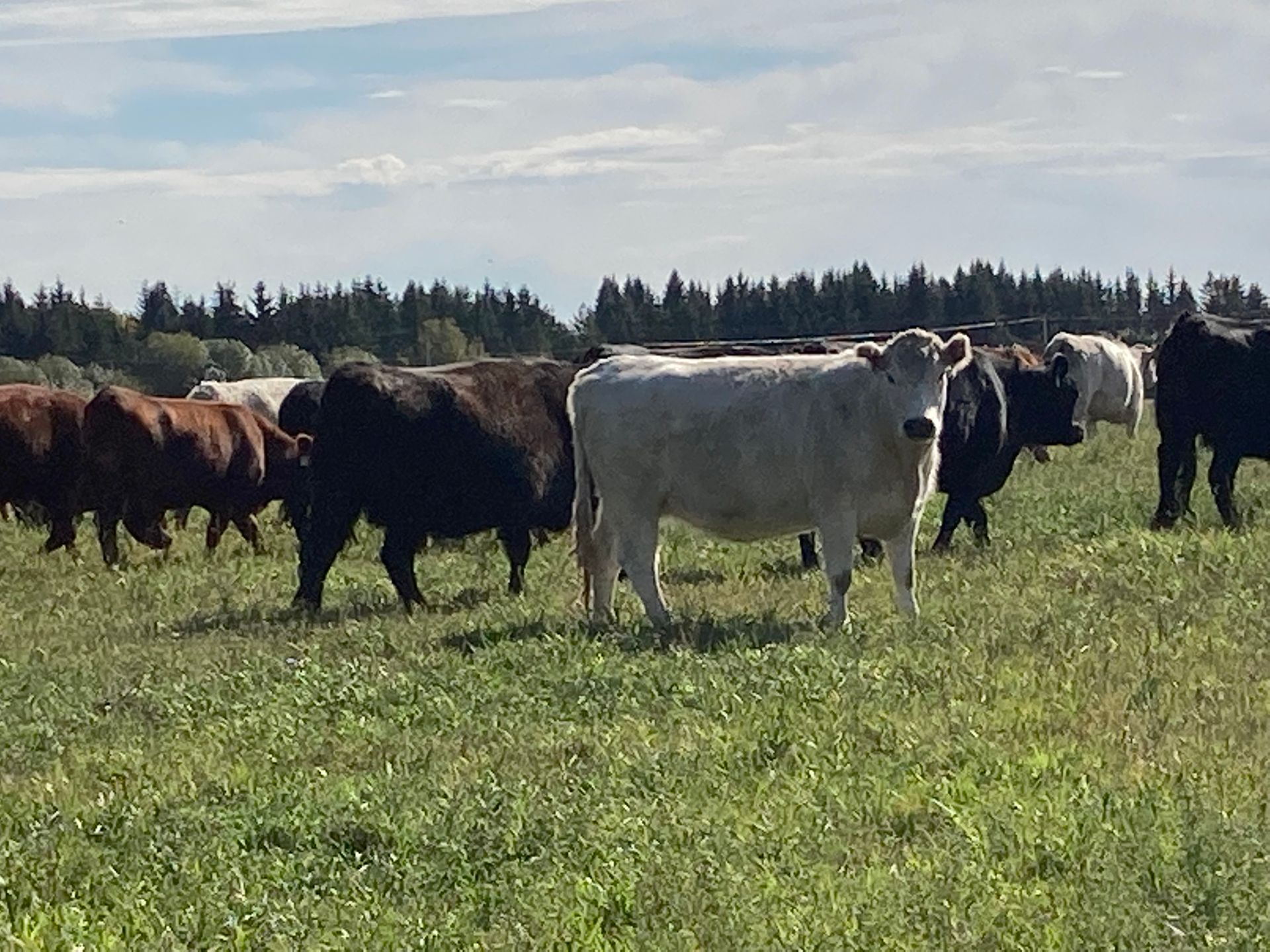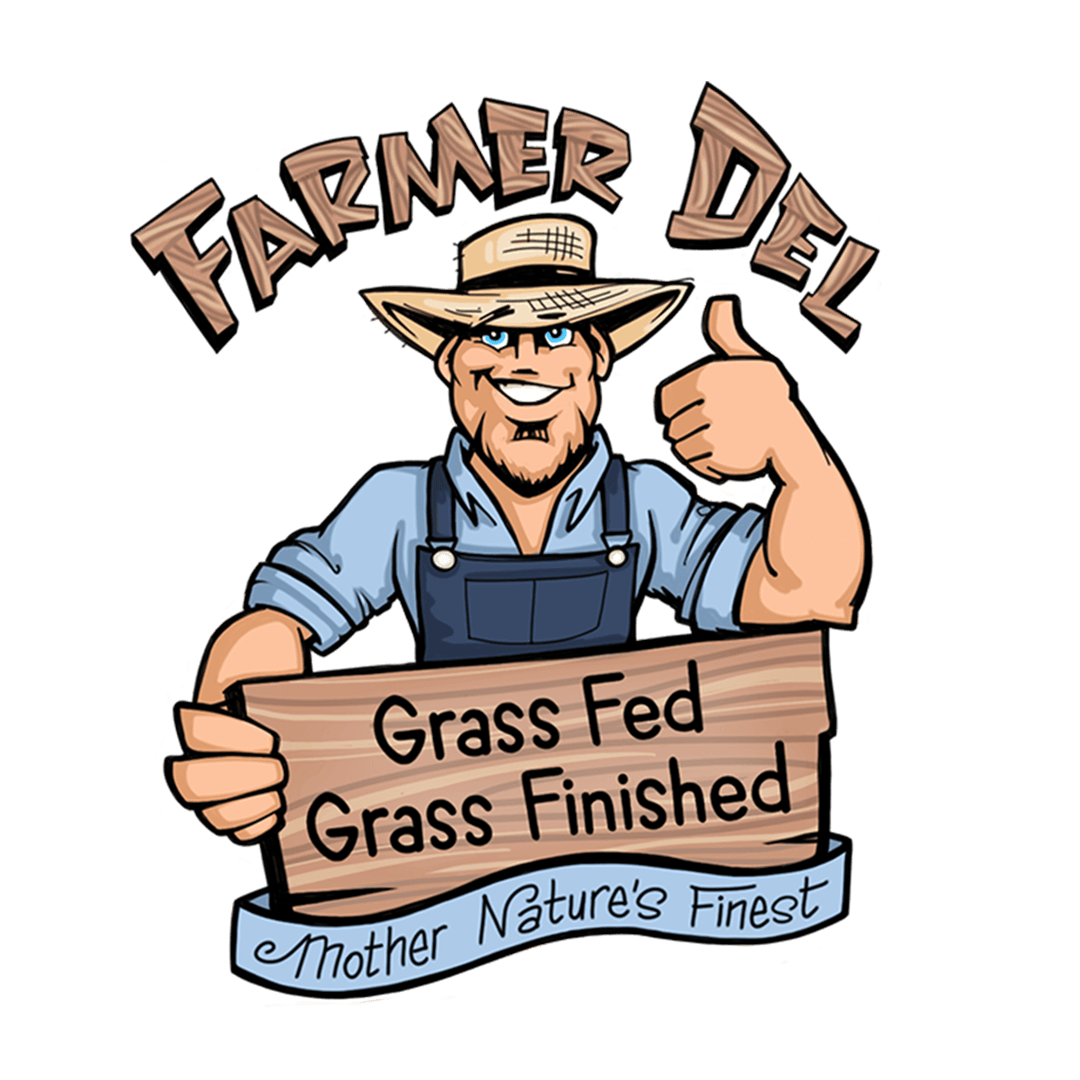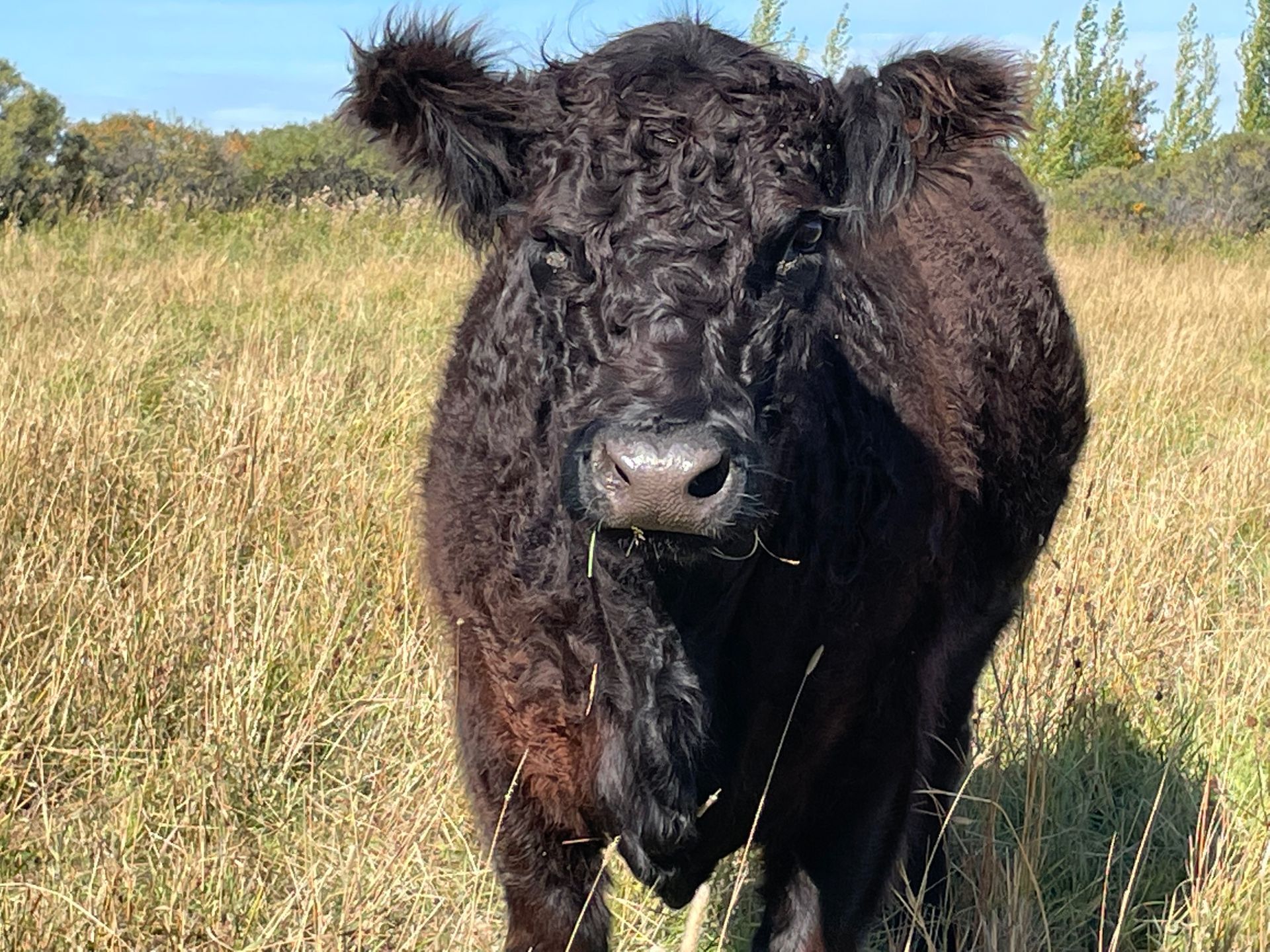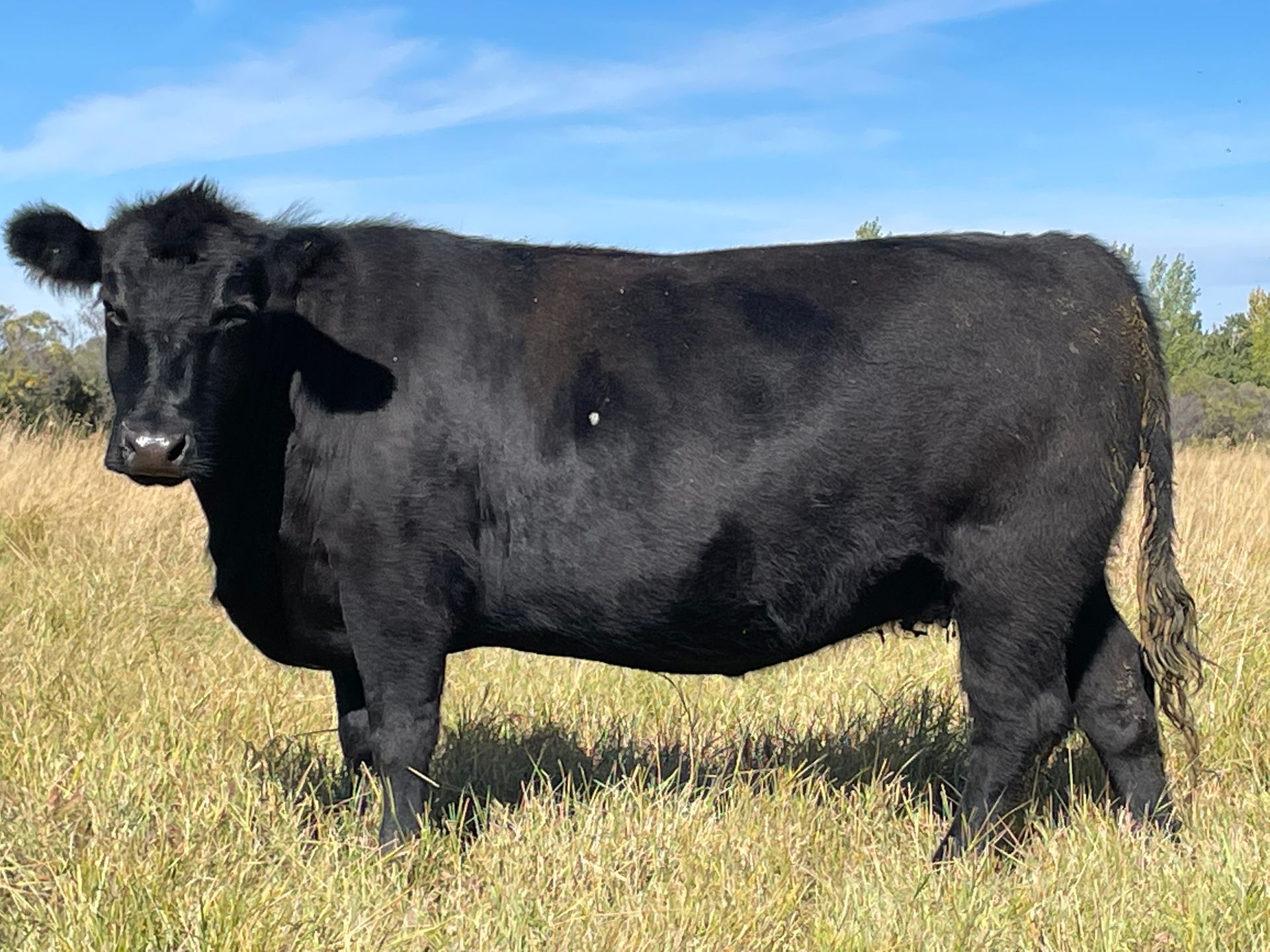Our BREEDS
Excellent Breeds for Marbling - Packed with Protein and Vitamins

North Devon (Ruby Red)
Not all cattle can produce fine, marbled meat on grass alone but North Devons do so with gusto.
Originating from the County of Devon in Southwest England, the Devon breed is ancient. In more recent times the breed has divided into North Devons and their more modern cousins the South Devons. Known for their docile nature and abundant, high quality milk production, North Devons make for an easy-to-handle herd with fast gaining calves. Their ability to gain well and marble on a strictly grass diet makes them a perfect fit for Farmer Del. Their smaller stature delivers tender meat even without grain and feedlot finishing, while their well developed ability to efficiently convert feed into growth produces a lean meat with a healthy meat profile not unlike Bison. Carcasses generally dress out at 62% to 65% of live weight with the meat being very fine in texture which is good news for butchers, producers and consumers.
Docile Animals – Delicious Beef
Studies have shown animals that are calm tend to produce more tender beef. When an animal is high strung it has higher levels of compounds like adrenaline in its body. Adrenaline can make meat tougher. If an animal lives a laid back life from start to finish the meat they produce can be more tender. This is one more reason why Ruby Reds and Galloway are great breed choices for high quality beef. As a breed overall they tend to be quieter and more go with the flow, maximizing their potential for tender beef.
It doesn’t get better for natural grass finishing than Galloways.
These animals have had since the 17th century to master the art of eating and they have perfected it.
Originally from Scotland, Galloways are one of the longest established cattle breeds in the world, making their debut in Canada in the 1850’s.
GALLOWAY
Galloway gets an A for adaptability with it’s dual layered coat for warmth in harsh climates and it’s ability to shed in warmer weather. These grass grazing wonders also have a reputation for being far from picky when it comes to eating. They are not only willing to eat less desirable varieties of plants but also able to digest them enabling them to thrive in less than perfect conditions.
From a producer’s perspective Galloway cattle also go easy on the pocket book in winter. Their marvelous double layer hair coat keeps them cozy in the the cold months thereby decreasing their calorie demands to maintain warmth while the grass doesn’t grow free but comes in the form of hay.
Of course, when it comes to meat quality they are hard to beat offering a meat that is tender, dark and flavourful. Carcasses generally dress out between 60% and 65% of live weight and are comprised of a meat that is lean yet wonderfully marbled.
For the health conscious consumer they offer a 3:1 ratio of Omega 6:Omega 3 fatty acids, well below the recommended 10:1. As well, on average these animals only carry about 2% fat with only 1% of that being the saturated fats.
Overall Galloway is another great fit for the Farmer Del family offering many benefits to both the producer and the consumer.
Why Ruby Reds are a Meat Lover’s Friend
For centuries Devon cattle were favoured by farmers and butchers alike.
Their resilience, adaptability, ability to efficiently convert lower quality feeds, strong mothering instinct and plentiful milk supply endeared them to farmers.
For the butcher they offered, and continue to offer, many attractive attributes as well. Devons are recognized world wide for producing some of the finest beef off pasture alone with almost 100% of carcasses passing the scrutiny of even the most demanding meat retailers.
The Rudy Reds (North Devons) reach a mature weight of approximately 1100lbs. Their rich milk supply gives calves a boost right from the start and their meat remains tender through to finishing. The beef is finely grained which ensures tenderness and succulence. These animals marble wonderfully, while maintaining a leaner profile, which infuses the meat with unbeatable flavour and enhances the cooking process. Though considered a lean beef, a Devon carcass will still possess an outer fat layer sufficient to easily age the meat 2 to 5 weeks without quality loss.
Studies in Arkansas showed smaller to intermediate framed animals perform much better on strictly grass diets. They consistently presented carcasses with higher degrees of marbling on an age-consistant basis. Devon carcasses entered in competition frequently place well with one heifer recently weighing in with 75.70% total saleable product and scoring 60 out of 60 for fat over the rib eye area.
North Devons are well-muscled, have great daily weight gain, and the finished product has good tenderness and flavour. They are a match made in heaven for butchers, chefs, and grass fed beef producers.
Sources:
http://www.redrubydevon.co.uk/ideal-sire.htm
http://www.beefmagazine.com/business/0301-growth-characteristics-important


